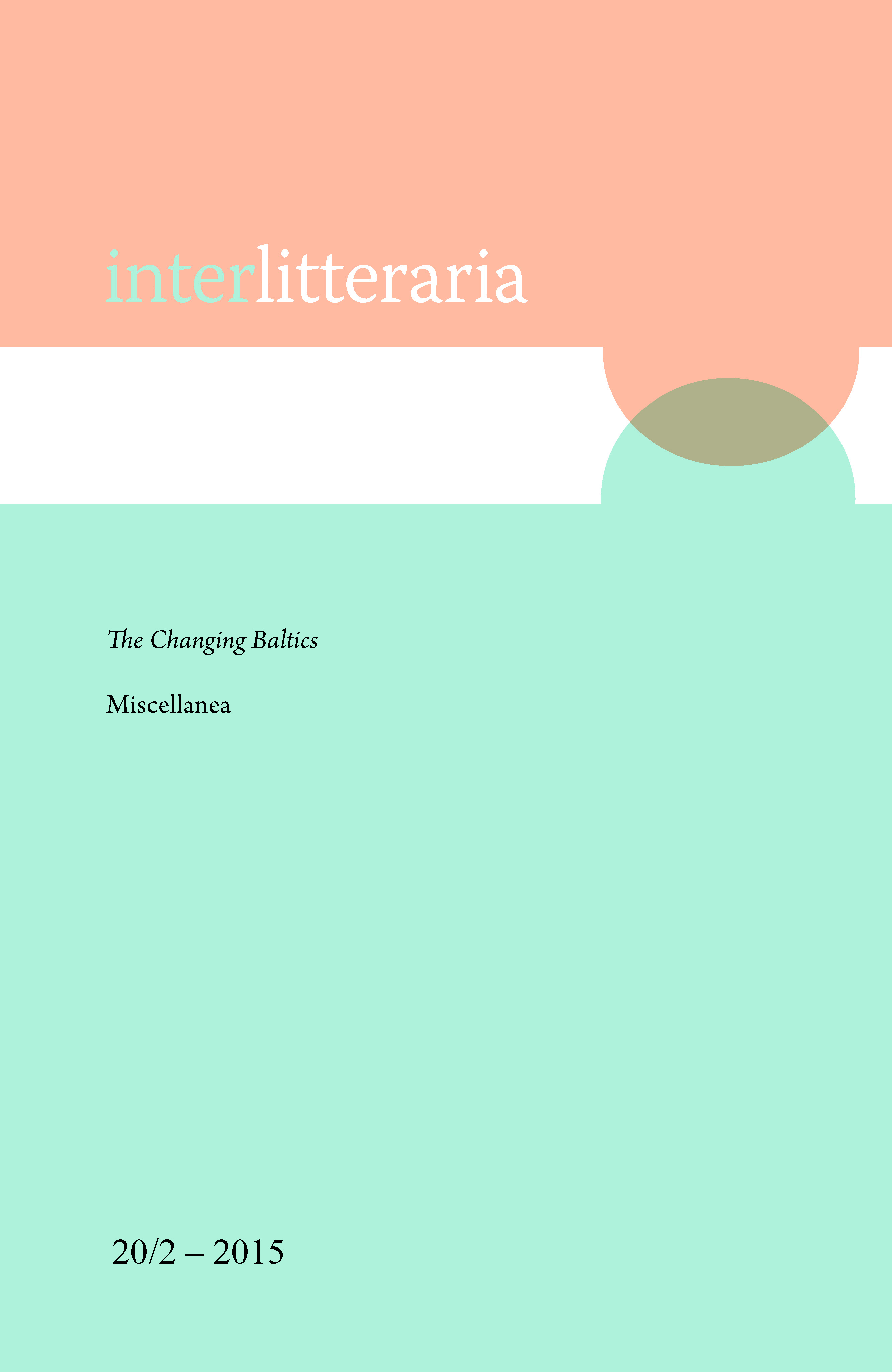Post-Apocalypse: Culture and Nature in Gundega Repše’s and Cormac McCarthy’s Works
DOI:
https://doi.org/10.12697/IL.2015.20.2.7Keywords:
ecocriticism, ecofeminism, post-apocalypse, nature, cultureAbstract
The paper focuses on nature and culture in a post-apocalyptic world, which becomes devoid of life and culture and poses a question of further existence of nature in the world. The works of the Latvian writer Gundega Repše and the American writer Cormac McCarthy are analysed in a comparative way to see how nature, set on a bleak stage with the only decoration of empty houses, can give a promise of further existence. Do the two works make it possible to answer the question of existence at its turning point: ‘How many people does this world need to be a fully natural and cultural place to inhabit?’ The paper tackles this issue from the perspective of ecofeminism and ecocriticism.Downloads
Download data is not yet available.
References
<div class="WordSection1"><p>Buell, L. 2009. <em>The</em><em> </em><em>Future</em><em> </em><em>of Environmental Criticism: Environmental Crisis and Literary Imagination</em>. Oxford: Blackwell Publishing.</p><p>Carbery, M. 2009. <em>Darker</em><em> </em><em>Woods</em><em> </em><em>Beyond:</em><em> </em><em>An</em><em> </em><em>Ecocritical</em><em> </em><em>Reading</em><em> </em><em>of Cormac McCarthy’s Fiction</em><a href="http://www.academia.edu/">. www.academia.edu</a> (14.11.2015).</p><p>Curtis, C. 2010. <em>Postapocalyptic</em><em> </em><em>Fiction</em><em> </em><em>and</em><em> </em><em>the</em><em> </em><em>Social</em><em> </em><em>Contract:</em><em> </em><em>We’ll</em><em> </em><em>Not Go Home Again</em>. Maryland: Lexington Books.</p><p>Dobie, A. 2011. <em>Theory into Practice: An Introduction to Literary Criticism</em>. Boston: Cengage Learning.</p></div><p>Dwyer, J. 2010. <em>Where</em><em> </em><em>the</em><em> </em><em>Wild</em><em> </em><em>Books</em><em> </em><em>Are:</em><em> </em><em>A Field Guide to Ecofiction</em>. Nevada: University of Nevada Press.</p><p>Estes, A. 2013. <em>Cormac McCarthy and the Writing of American Spaces</em>. Amsterdam: Rodopi.</p><p>Garrard, G. 2014. <em>The</em><em> </em><em>Oxford</em><em> </em><em>Handbook</em><em> </em><em>of Ecocriticism</em>. Oxford: Oxford University Press. <a href="http://dx.doi.org/10.1093/oxfordhb/9780199742929.001.0001" target="_blank">http://dx.doi.org/10.1093/oxfordhb/9780199742929.001.0001</a></p><p>Garrard, G. 2004. <em>Ecocriticism</em>. Oxfordshire: Routledge.</p><p>Glotfelty, C., Fromm H. 1996. <em>The</em><em> </em><em>Ecocriticism</em><em> </em><em>Reader:</em><em> </em><em>Landmarks</em><em> </em><em>in</em><em> </em><em>Literary</em><em> </em><em>Ecology</em>. Georgia: University of Georgia Press.</p><p>Heffernan,T.2008.Post<em>-apocalyptic</em><em> Culture: Modernism, Postmodernism, and the Twentieth-Century Novel</em>. Toronto: University of Toronto Press.</p><p>McCarthy, C. 2006. <em>The Road</em>. New York: Alfred A. Knoff.</p><p>Morton,T. 2007. <em>Ecology without Nature: Rethinking Environmental Aesthetics</em>. Cambridge: Harvard University Press.</p><p>Murphy, P. 2000. <em>Farther Afield in the Study of Nature-Oriented Literature</em>. Charlottes- ville and London: University Press of Virginia.</p><p>Rehill, A. 2009. <em>The</em><em> </em><em>Apocalypse</em><em> </em><em>Is</em><em> </em><em>Everywhere.</em><em> </em><em>The</em><em> </em><em>Apocalypse</em><em> </em><em>Is</em><em> </em><em>Everywhere:</em><em> </em><em>A Popular History of America’s Favorite Nightmare</em>.California: ABC-CLIO.</p><p>Repše, G. 2007. <em>Stigma</em>. Rīga: Zvaignze ABC.</p><p>Sõrmus, M., Tofantšuk, J. 2013. Ecocritical Considerations of Nature in Contemporary British and Estonian Literature. – <em>Interlitteraria</em>, 18/1, 108–123. <a href="http://dx.doi.org/10.12697/IL.2013.18.1.08" target="_blank">http://dx.doi.org/10.12697/IL.2013.18.1.08</a></p><p>Westling, L. 2013. <em>The Cambridge Companion to Literature and the Environment</em>. Cambridge: Cambridge University Press. <a href="http://dx.doi.org/10.1017/CCO9781139342728" target="_blank">http://dx.doi.org/10.1017/CCO9781139342728</a></p><p>Witschi, N. 2011. <em>A Companion to the Literature and Culture of the American West. </em>New Jersey: Wiley-Blackwell. <a href="http://dx.doi.org/10.1002/9781444396591" target="_blank">http://dx.doi.org/10.1002/9781444396591</a></p>
Downloads
Published
2015-12-31
Issue
Section
Articles
License
The contents of Interlitteraria are published under CC BY-NC-ND licence.


